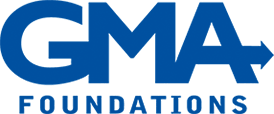
Summary: A foundation makes inclusion and board diversity a priority for its own leadership, pioneering a fellowship program and a community advisory board. GMA worked with the trustees to find a cost-effective way to include community perspectives in the foundation leadership.
Tapping into the community for leadership
An independent foundation had been influential in a mid-sized city for over 75 years. In the 1970s the city became home to a large number of refugees, and between 1990 and 2010 the proportion of ethnic minorities living in the city doubled.
As the city’s population became more ethnically diverse, the foundation’s board worked to support organizational diversity among the city’s nonprofit organizations. It funded leadership development initiatives, rewarded nonprofits with diverse boards, supported training efforts, and hired a consultant with experience diversifying boards. Despite all this, the foundation was not as effective as it had hoped in recruiting more immigrants and people of color to serve on nonprofit boards.
The foundation’s board, like many others of its vintage, was a small group of white professionals who had backgrounds in business, law, banking, and investment. Facing the reality of aging leadership and no term limits, the board worked with GMA Foundations to apply its vision of an inclusive and diverse city to its own governance.
Building a pathway to board diversity
In the mid-1990s, the board began to address its own lack of diversity with a paid, part-time fellowship program for young adults of color in their post-college years. The fellows accompanied GMA Foundations program staff on site visits, attended applicant review meetings, prepared reports for the board, and attended board meetings.
This process was educational for both trustees and fellows. It stimulated a new level of collegiality and a sharpened cultural awareness. One of the fellows became a member of the foundation’s board of trustees.
After ten years of success with this program, the board developed a more streamlined model for engagement – a community advisory committee of local professionals. The committee members, or advisors, appointed were immigrant professionals with local careers. Under this new system, advisors were treated like trustees. They received board materials, attended investment and grant meetings, and were paid a stipend to attend meetings. While they were not given a formal vote, their input was valued and often decisive in the decision making.
Shifting the board’s culture with younger leadership
Over time, the trustees voted all three of its advisory members to join the board, and for several years the foundation operated without an advisory committee. Now the foundation is working to re-institute the advisory role so as to bring back the spark of younger leadership and ideas, with the potential to inform grantmaking and serve as a citywide example of enlightened governance.
Keys to success
- Cede board control. Foundation board members are entrusted with protecting the assets of the foundation and the donor’s intent. As such, trustees take their decisions seriously and often rely on outside investment expertise. Similarly, boards which include others in program-related decision making, ceding control when appropriate, also make the foundation’s work stronger.
- Learn from the grassroots. Increasing diversity, in its broadest sense, goes to tapping the wisdom of the people closest to the foundation’s mission. Not a one-time occurrence, learning from the grassroots becomes a habit in inclusive organizations.
- Keep it simple. Diversity programs tend to be labor intensive and to take on multiple goals and activities, including education and training of young professionals. Over time, this foundation learned to trust the professionals brought on as advisors, thereby reducing the education component and cost of the program. In simplifying, they found a cost-effective way to include community perspectives on its board.
——–
Phil Hall, director of grantmaking at GMA, takes a special interest in promoting talent within the firm and in the field of philanthropy.
Read more: D5 Coalition, Stories from the Movement to Advance Diversity, Equity, and Inclusion
